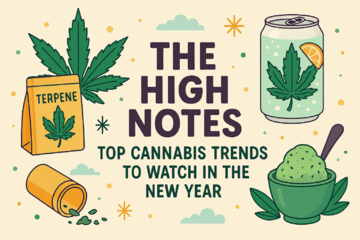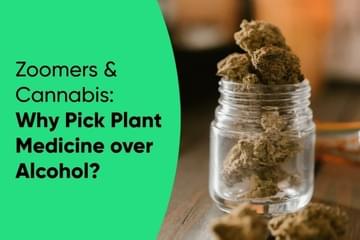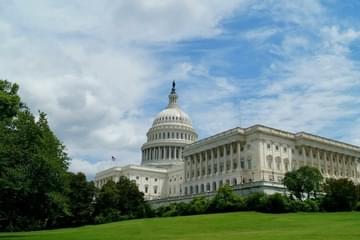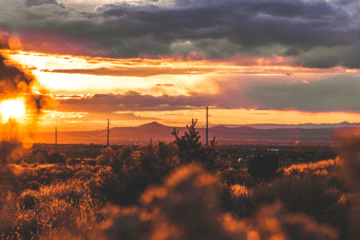
Are Teens Smoking More Weed Now?
Published on 3/18/21
If there is one thing for certain today, it is that the cannabis business is booming. Sure, this is a good thing and can result in some positive economic impacts that this country desperately needs, especially in the wake of the COVID-19 pandemic. However, some people believe that there has been a downside to the spread of cannabis legalization, and that is its possible effect on our youth. We've taken a closer look at how marijuana is affecting teens and if their usage has increased or not.
Cannabis and Teens
 Unsplash
UnsplashMarijuana and teenagers are a tricky combination. Studies surveying how the two go hand-in-hand can often be inconclusive. Marijuana is the second most used intoxicant in teenagers, behind alcohol, with around 23% of 12th graders partaking in the substance. Whether or not teen marijuana consumption is affecting the brain is an important question to ask, as the brain is still in a volatile state until someone is in their mid-20s or so.
What Does THC Do to the Brain?
THC is what gives marijuana its psychoactive effects. THC binds with receptors, specifically the CB1 receptor, in the brain through the endocannabinoid system, and it is said that the amount of these receptors increases with age. Adding marijuana to the mix could inhibit this process, as the ECS plays a paramount role in many bodily functions.
Does Cannabis Affect Development?
Many studies have found that with heavy cannabis usage there have been disadvantages in neurocognitive performance and brain development, among other things. However, it is important to note that many studies have failed to differentiate these issues with already preexisting conditions. Studies have also found that marijuana could have negative implications for daily academic, social and occupational functions even much later in life. Other studies have found that weed use is toxic for the brain tissue, changing neurochemical communications and genetic expressions.
One recent study examined the aptitude between regular marijuana users and non-marijuana users between the ages of 13 to 18. The findings included those who used marijuana at least once a week performed worse on tests of attention, learning and memory. A New Zealand study even found that persistent use decreased IQ by up to 6 points, and this was even with controlled educational differences.
The Findings Aren't All Bad
 Unsplash
UnsplashSure, the findings on what marijuana does to the brain are not always positive. However, these findings have often resulted in mixed conclusions or even no negative conclusions at all. A finding from the University of Colorado at Boulder failed to find any differences in the nucleus accumbens or amygdala in marijuana smokers versus non-marijuana smokers. Another study conducted by the University of Pittsburgh Medical Center found that chronic use among teenage boys didn't raise the risk of asthma, lung cancer or depression.
There are hopes for future studies that look at kids before they start using the substances and then follow them over time to see what happens as a result of using cannabis. Just like anything in the field of marijuana, there is still so much more research to be done.
Current Legalization and Adolescence
2020 was a huge year for cannabis legalization across the country, where before the November elections, there were only 11 states that legalized recreational cannabis. However, the likes of Arizona, Montana, New Jersey and South Dakota all passed recreational measures. With only 15 states outlawing marijuana in any form and over 2/3rds of Americans pushing for legalization at a federal level, the country is slowly but surely pushing towards marijuana being accessible everywhere.
While legalization may be great for the economy, many people have become worried about what the younger population will do in response to this. Some believe that legalization furthers permissive attitudes towards marijuana in teens and that the chance for teens driving impaired with increase. However, a further look may disprove some of these ideas.
Has Cannabis Use Increased in Teens Where It Is Legal?
 Unsplash
UnsplashThe short answer, that most people may be surprised by, is no. Studies done primarily in Washington and Colorado, where recreational cannabis has been legal for a long time, have seen a downward trend in cannabis use among teenagers.
According to the Journal of Adolescent Health, use is less often in states with legalized marijuana, with some user frequency decreasing by 16%. As a whole, there is not a lot of evidence that legal weed has increased cannabis use in teens. Colorado even saw a decrease in use with teens when legalization happened and car accidents involving teens didn't go up either.
A recent Colorado study surveyed 56,000 kids and the findings were surprising. It found that 4 out of 5 kids don't smoke marijuana, meaning that 81% did not use it while only 19% of kids did. Funny enough, 79% of teenagers thought that their peers used marijuana, showing that there is a huge difference between what we accept as truth and what the reality is when it comes to weed and teens.
Studies in Colorado showed that 74% of teenagers are usually given cannabis, especially by someone who is also 21 or have bought it from someone else.
It's also important to point out that alcohol still holds rank over marijuana for intoxicating substances that adolescents use, as the Colorado study above reported that 59% of teens have tried alcohol, compares to 35% who have tried marijuana.
Do you we should be worried about teenagers when it comes to marijuana? Do you feel there is a downward trend when it comes to younger people using weed? Let us know below.


















